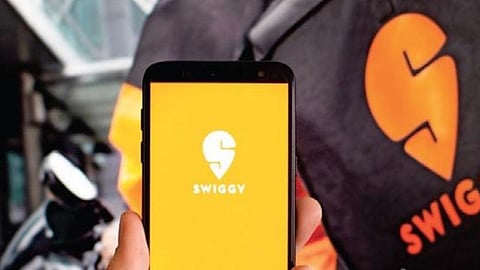

NEW DELHI: The Delhi High Court has taken up a plea alleging that food and grocery delivery apps Swiggy and Zepto continue to exclude persons with disabilities (PwDs), particularly the visually impaired, from independently accessing their platforms.
Justice Sachin Datta, on Wednesday, issued notices to both companies as well as to the Ministry of Electronics and Information Technology (MeitY), seeking their responses by May 28. The court’s order came while hearing a petition filed by Mission Accessibility, an NGO working to uphold the digital rights of the disabled.
The petition accuses Swiggy and Zepto of violating fundamental rights guaranteed under Articles 14, 19, and 21 of the Constitution. It also cites multiple breaches of the Rights of Persons with Disabilities Act, 2016, and the corresponding Rules notified in 2017.
Rahul Bajaj and Amar Jain, lawyers who themselves live with visual impairments, appeared in person to argue the case. They described how basic functions on these apps—such as searching for items, reading product information, and navigating the user interface—remain inaccessible to those reliant on screen reading software.
They pointed out that although the RPwD Rules had set a 2019 deadline for making digital services fully accessible, both Swiggy and Zepto have continued to launch and update their services without ensuring screen reader compatibility.
The petition details numerous shortcomings: icons without proper labels, critical product data missing from descriptions, and a lack of audio-guided prompts for actions like returning orders. The result, it argues, is a deeply exclusionary digital experience that strips disabled individuals of their independence and forces them to depend on others for essential tasks.
Under Sections 40 and 46 of the RPwD Act and Rule 15 of the 2017 Rules, digital service providers are legally bound to adhere to prescribed accessibility standards. Swiggy and Zepto, the plea asserts, have failed to meet these obligations.
The petition further urges the Court to direct MeitY to exercise its enforcement powers under the RPwD Act, including invoking the penalty provisions laid down in Sections 89 and 90 against non-compliant companies.
Petitioner in the case requested court to
Order a comprehensive accessibility audit by accredited government auditor
Mandate a time-bound roadmap to correct present accessibility flaws
Ensure long-term compliance with BIS IS 17802 standards, the national digital accessibility framework
Introduce compulsory sensitisation training for developers and customer service staff
Make return and refund procedures accessible to visually impaired users